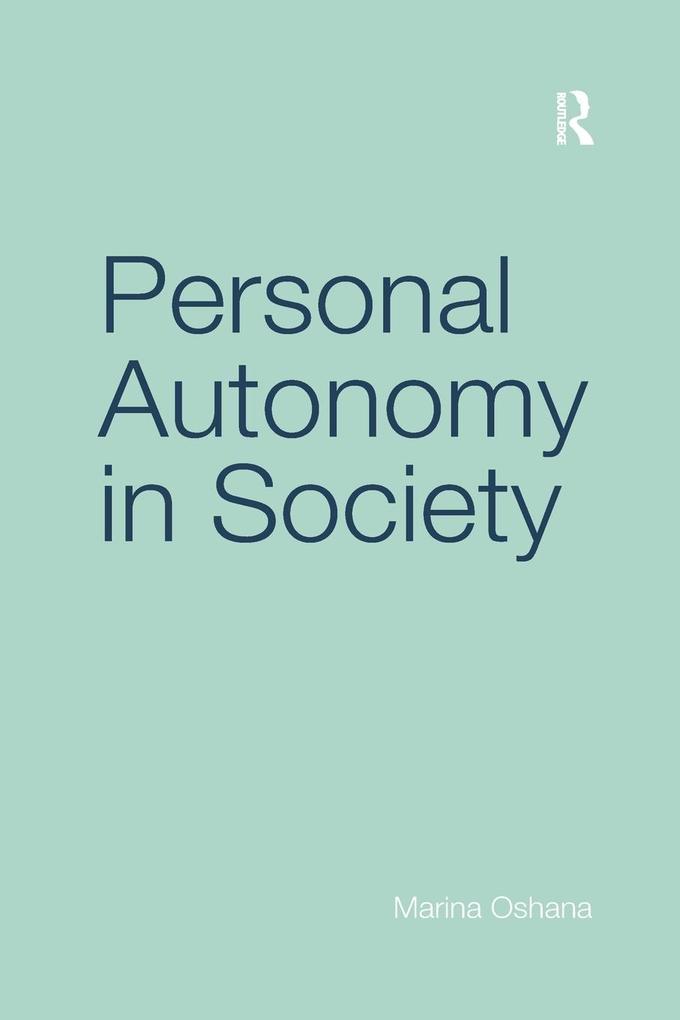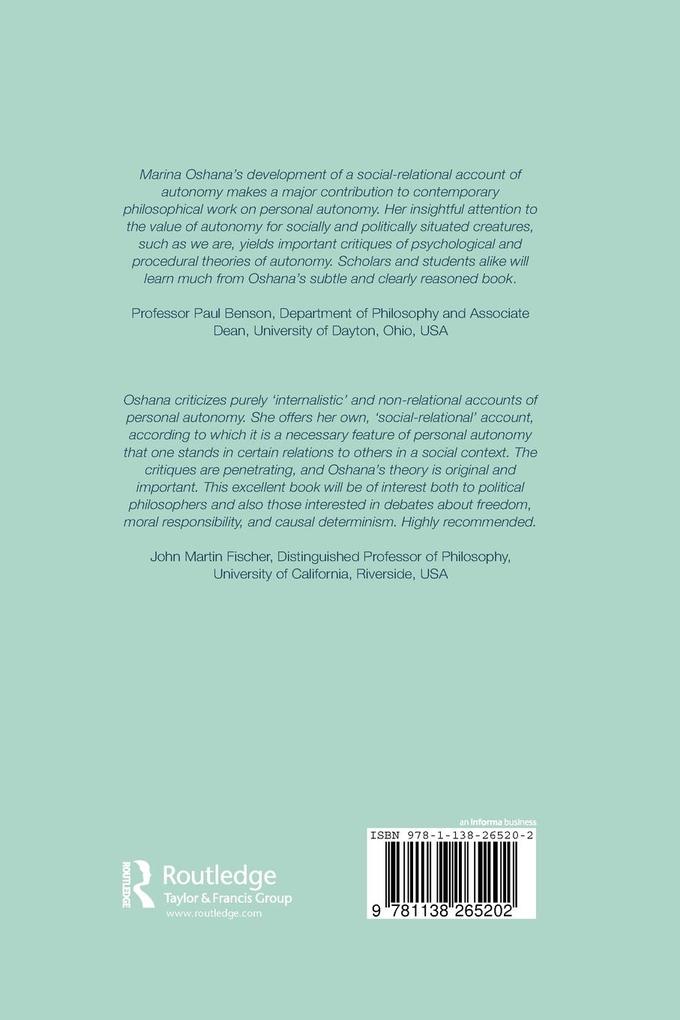Challenging many of the currently accepted conceptions of autonomy and of how it is valued, Oshana develops a social-relational account of autonomy that is constituted by a person's relations with others and by the absence of certain social relations. She denies that command over one's motives and the freedom to realize one's will are sufficient to secure the kind of command over one's life that autonomy requires, and argues against psychological, procedural, and content neutral accounts of autonomy.
Inhaltsverzeichnis
Contents: Preface; The concept of autonomy; The inner citadel - autonomy as psychological authenticity; Social-relational autonomy; The conditions for personal autonomy; Objections from liberalism; The value of autonomy; What kind of freedom does autonomy require? ; Loose ends and parting thoughts; Bibliography; Index.













